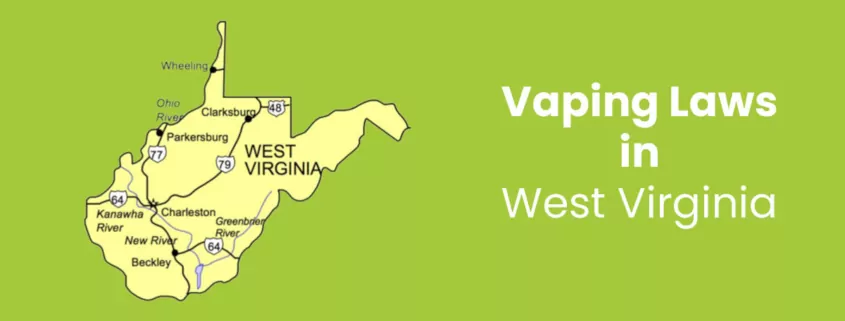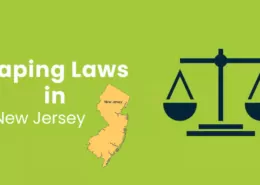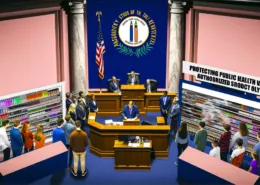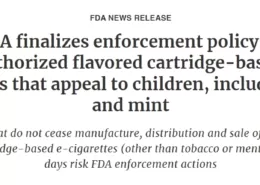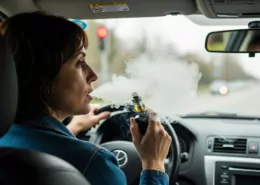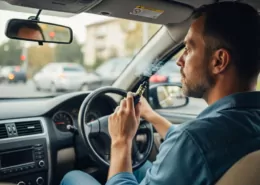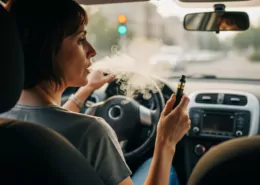Vaping Laws in West Virginia : A Comprehensive Guide for 2025
West Virginia, a state known for its rugged mountain beauty and rich industrial history, has developed a unique and evolving set of regulations for vaping products. The state’s approach is characterized by a combination of strict age restrictions, a business-friendly tax structure compared to its neighbors, and a notable reliance on local ordinances for public use prohibitions. This guide provides an in-depth look at West Virginia’s current vaping laws, incorporating recent legislative updates and authoritative sources to help you navigate the regulatory environment with clarity and confidence.
Is Vaping Legal in West Virginia?
Yes, vaping is legal for adults aged 21 and over in West Virginia. However, it is subject to a complex set of regulations regarding where products can be sold, who can purchase them, and where they can be used, with a significant number of counties enacting stricter local rules than the state.
What West Virginia Considers a Vapor Product
Under West Virginia Code § 16-9A-2, vaping products are legally classified as “tobacco products” in West Virginia. The law defines “vapor product” as any noncombustible product containing or delivering nicotine or other substances intended for human consumption that employs a heating element, power source, or electronic circuit to produce a vapor. This includes e-cigarettes, e-cigars, e-pipes, and their components, ensuring that a wide range of vaping devices and consumables fall under state regulatory control.
Age Restrictions: Strictly 21 and Over
West Virginia rigidly enforces a minimum legal sales age of 21 for all tobacco and vapor products. This “Tobacco 21” standard, which was formally adopted statewide by June 2024 with the passage of House Bill 4449, aligns West Virginia with federal legislation. It is illegal for any person to sell, furnish, or purchase on behalf of an individual under 21 any vaping product.
Retailers are legally mandated to verify the age of any purchaser by checking a valid government-issued photographic identification, such as a driver’s license, state ID card, passport, or military identification. Penalties for retailers who sell to underage individuals are significant and escalate with subsequent offenses within a five-year period:
- First offense: $250 fine.
- Second offense: $500-$750 fine.
- Third offense: $750-$1,000 fine.
- Fourth and subsequent offenses: $2,000-$5,000 fine.
Minors under 18 years of age are also prohibited from possessing or using any tobacco products, including vaping devices. Penalties for youth possession escalate from a $50 fine and 8 hours of community service for a first offense to a $200 fine and 24 hours of community service for a third or subsequent offense.

Where Vaping is Prohibited in West Virginia?
One of the most important aspects of West Virginia’s vaping laws is the distinction between statewide rules and the authority of local municipalities.
The West Virginia Clean Indoor Air Act and Vaping
West Virginia’s statewide Clean Indoor Air Act has NOT been amended to include vaping products. This means there is no statewide ban that automatically prohibits vaping in all the same places where smoking is banned, such as restaurants, bars, and private workplaces. This makes West Virginia’s state-level law more permissive regarding public indoor vaping than many other states.
However, state law does prohibit vaping in several specific, sensitive locations:
- Schools: Vaping is strictly prohibited in all instructional areas of public schools and on all school grounds, with limited exceptions for faculty areas that are inaccessible to students.
- State-Owned Vehicles: Vaping is banned in all state-owned vehicles.
- Department of Corrections Facilities: Vaping is prohibited in all facilities under the jurisdiction of the Department of Corrections.
Local Ordinances in Different Countries
Because the state’s Clean Indoor Air Act does not cover vaping, local municipalities and counties have the authority to enact their own, often stricter, ordinances. This has created a “patchwork” of regulations across West Virginia. As of 2025, at least 29 counties have adopted local ordinances that prohibit vaping wherever smoking is prohibited, effectively creating comprehensive indoor vaping bans within their jurisdictions.
Major jurisdictions with such comprehensive public vaping bans include:
- Kanawha County (including Charleston): Prohibits vaping in all public places and workplaces, including restaurants, retail stores, and even vape shops themselves, with a 15-foot buffer zone around business entrances.
- Cabell County (including Huntington): Implemented a similar ordinance banning vaping devices in all public spaces, including restaurants and vape shops.
Other counties with ordinances prohibiting vaping where smoking is prohibited include Barbour, Berkeley, Brooke, Calhoun, Grant, Greenbrier, Hampshire, Hancock, Lewis, Marshall, Mason, Mercer, Mineral, Monroe, Morgan, Nicholas, Ohio, Pleasants, Preston, Randolph, Ritchie, Roane, Taylor, Tucker, Upshur, Webster, Wirt, Wood, and Wyoming. The key takeaway for vapers is to always look for local signage and be aware of specific city or county rules.
Ecigator is one of the well-known vape brands spun off from FM Technology Co., Ltd, it’s an ISO-certified disposable vape manufacturer for OEMs, ODMs, and OBM since 2010. The founder team comes from top firms with more than 10 years of experience in the vaping industry and has devoted thousands of hours to providing users with a better and better experience.
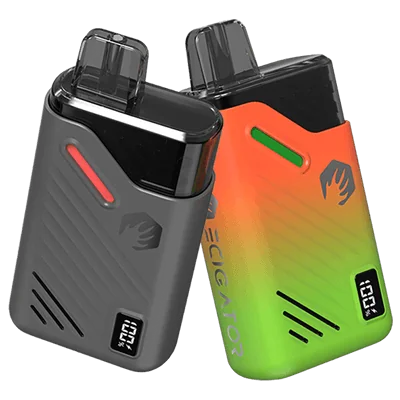
18K Disposable Pod Kit
Disposable Pod Kit – 18ml changeable pod with 650mAh rechargeable battery.
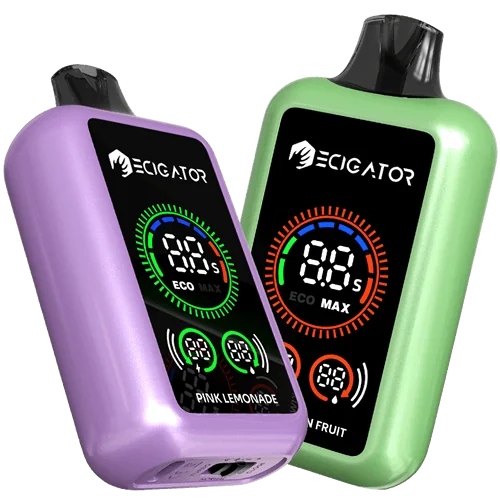
20K with Large Screen
20000 Puffs Disposable Vape with large screen. Normal and Boost working modes.
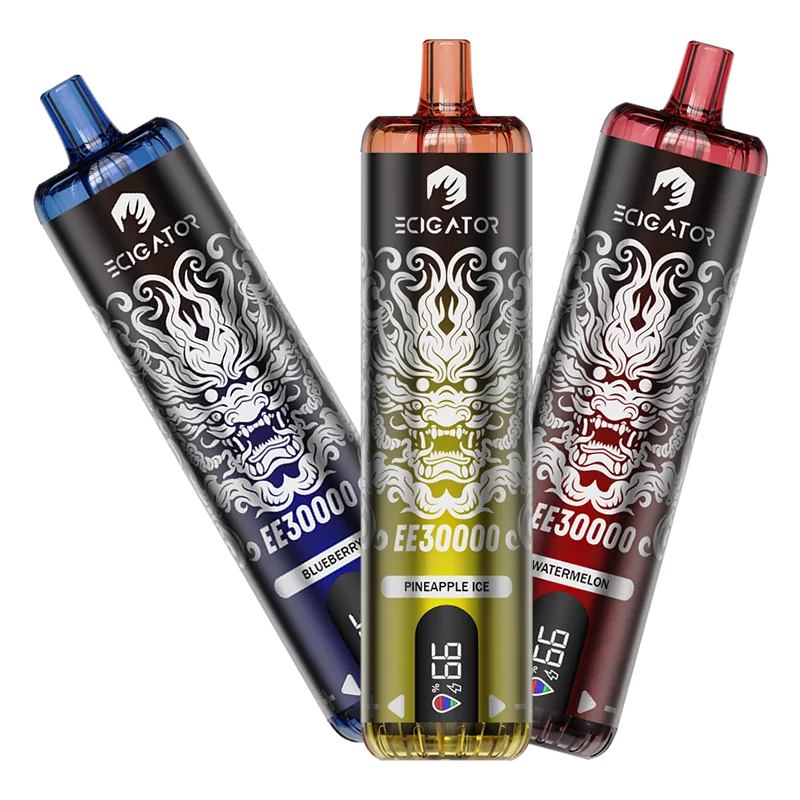
30K DTL Disposable
30K Puffs DTL(Directly to Lung) disposable vape with airflow control and screen.
Selling Vaping Products in West Virginia
The sale of vaping products in West Virginia is a regulated activity, with specific requirements for business registration and tax compliance, though its licensing approach is less burdensome than many neighbors.
Business Registration and Licensing
All businesses selling tobacco products, including vaping devices, must obtain a West Virginia Business Registration Certificate from the State Tax Division. This is a one-time registration with a fee of $30 per location. Unlike neighboring states that impose hefty annual licensing fees (ranging from $600 to $1,100), West Virginia’s approach focuses on initial registration and ongoing tax compliance rather than extensive annual licensing for vape retailers specifically. However, businesses selling e-cigarette liquids that have not yet been taxed must also register to remit the e-cigarette liquid excise tax.
Sales Practices and Product Requirements
- Vending Machines: Vending machine sales of vapor products are permitted only in venues that prohibit individuals under 18 from entering or in establishments licensed as Class A by the Alcohol Beverage Control Commissioner, and must use ID scanning or employee-activated systems.
- Online Sales and Delivery: Online sales are permitted with proper business registration and tax compliance. However, sellers must implement robust age verification procedures, including using government databases or obtaining photo ID copies, and must send email notices with health warnings to consumers. Delivery of certain products like delta-8 THC is specifically prohibited.
Vape Shop Location and Advertising Restrictions
A legislation that has passed is Senate Bill 758 (2025), which introduces statewide standards for vape and smoke shops. This new law, the “Vape and Smoke Shop Location and Operating Requirements Act,” empowers county health departments to enforce rules that include:
- Prohibiting new vape shop locations within one mile (5,280 feet) of schools, parks, daycare centers, libraries, religious buildings, and government offices.
- Regulating signage, prohibiting flashing, animated, or moving signs, and limiting sign size to 30 square feet mounted flat against the building.
This law represents a major shift, standardizing location and advertising restrictions that were previously only handled at the local level, as seen in places like Raleigh County and Morgantown.
Taxation of Vaping Products in West Virginia
West Virginia imposes a state excise tax on electronic cigarette liquids. The tax rate is 7.5 cents ($0.075) per milliliter. This tax applies to any liquid or liquid mixture used in e-cigarettes, regardless of whether it contains nicotine, and extends to mixing kits. This tax rate is currently the lowest among its neighboring states, which may create cross-border commerce advantages but has also led to legislative proposals to increase it significantly. The wholesale or retail dealer who first receives untaxed e-liquid in the state is responsible for paying the tax, and products without proper tax payment are considered contraband.
The Status of Flavored Vaping Products and Advertising
As of 2025, West Virginia does not have a statewide ban on the sale of flavored vaping products, beyond the federal FDA restrictions that target unauthorized flavored closed-system devices (pods/cartridges) other than tobacco and menthol.
State-level advertising restrictions are also minimal, primarily requiring adherence to FDA-mandated warning statements that must occupy at least 20% of the advertisement space. However, this is a key area of proposed legislative change.

ECIGATOR
Ecigator is one of the well-known vape brands spun off from FM Technology Co., Ltd, it’s an ISO-certified disposable vape manufacturer for OEMs, ODMs, and OBM since 2010. The founder team comes from top firms with more than 10 years of experience in the vaping industry and has devoted thousands of hours to providing users with a better and better experience.
Pending Legislation and Future Developments
The regulatory landscape in West Virginia is dynamic, with several significant legislative proposals introduced in the 2024-2025 sessions that could dramatically alter the market.
Several bills, such as Senate Bill 816 and House Bill 5037, have been proposed to establish a state directory requiring FDA marketing authorization for all vaping products sold in the state. This “PMTA registry” model would ban the vast majority of vaping products currently on the market, particularly flavored disposables that lack FDA approval. While these bills have faced challenges and have not yet passed, they indicate a strong legislative interest in aligning the state’s market with federal oversight.
Conclusion:
West Virginia’s vaping laws in 2025 present a unique regulatory model that combines a relatively permissive statewide framework with the capacity for strong local control. The state’s low e-liquid tax and lack of a statewide indoor vaping ban or flavor ban make it more business-friendly than many of its neighbors. For consumers, it requires awareness of local ordinances that dictate where vaping is and isn’t allowed. West Virginia remains a key state to watch as it continues to balance public health goals, particularly its status as the “teen vaping capital,” with its traditionally more moderate regulatory approach.
References
- West Virginia Tax Division – TSD-451 (E-Cigarette Liquid Excise Tax)
- WV Legislature – §16-9A-3. Selling or furnishing tobacco, tobacco products, etc., to persons under eighteen… (Note: Age now 21)
- WV Legislature – §11-12-4A (Business Registration Certificate)
- West Virginia Watch – West Virginia rolls out new anti-vaping initiative for students (Aug 2023)
- Is It Illegal to Vape or Smoke While Driving in the UK? - August 11, 2025
- Virginia Roanoke Considers $20,000 Annual Fee for Vape Shops - August 11, 2025
- Mississippi to Ban Unauthorized Vape Products in October - August 11, 2025

